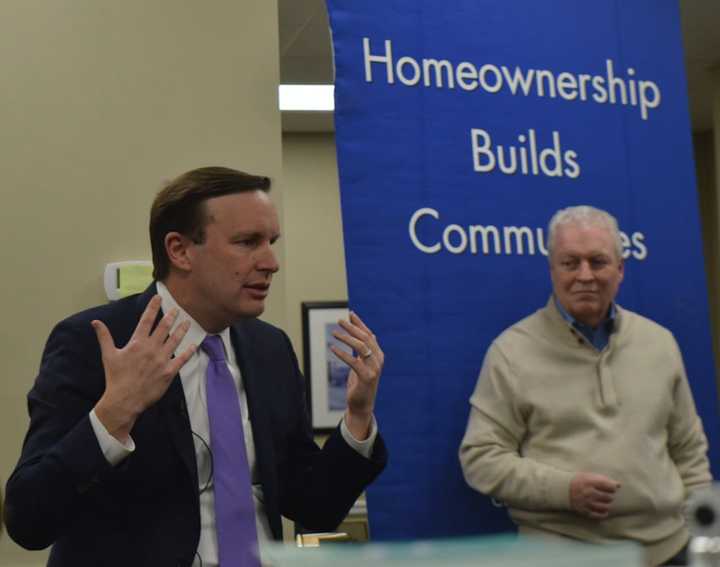Amid warnings from economists that the law will limit mortgage and property tax deductions and cause home values to drop, Murphy said he wanted to hear from those who know the state’s real estate market best.
“It’s a tax increase for tens of thousands” of working people across Connecticut, said Murphy, who spoke with constituents at the offices of the Berkshire Hathaway HomeServices New England Properties.
The National Association of Realtors estimates home values in Connecticut could fall by more than 10 percent as a result of the tax changes.
While Murphy said he agreed that corporate taxes were too high and needed to be reduced, he said many of the changes will mean homeowners will not be able to claim deductions that offered tax relief overall.
The plan will likely add $2 trillion to the country’s deficit, meaning fewer resources for things Connecticut desperately needs, such as infrastructure improvements, Murphy said.
Calling Fairfield County a “tax engine for the state,” Murphy said lawmakers may have to look at regionalization of services to combat the redundancy of 169 separate municipal governments.
States in the Boston-Washington, D.C. corridor may have to band together to improve the infrastructure that makes the area desirable for both businesses and commuters, he said.
And Connecticut needs to stop viewing its cities as money-sucking burdens and invest in ways to make them attractive to younger workers and homebuyers, many of whom prefer urban living.
“Ultimately, we’ve got to solve the problem ourselves in the Northeast,” he said.
Click here to follow Daily Voice Shelton and receive free news updates.
